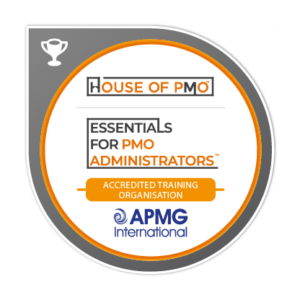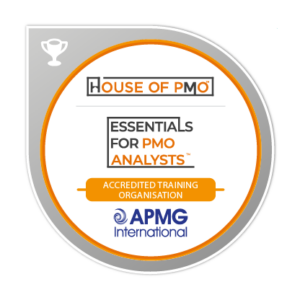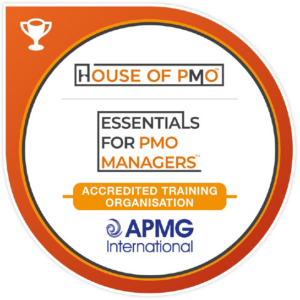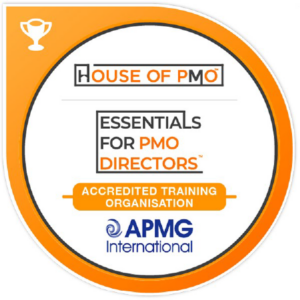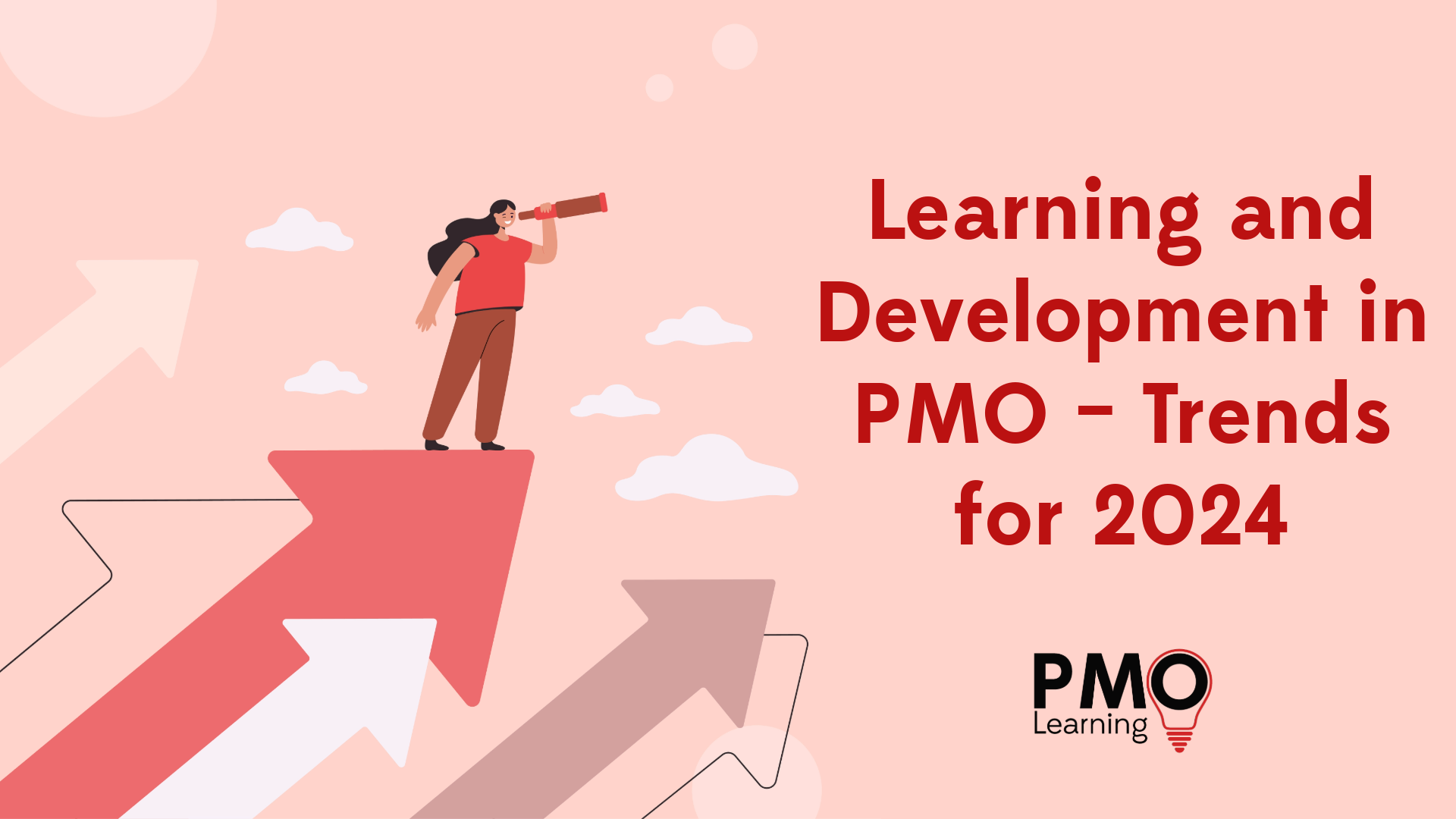
As the new year approaches it is an opportune time to reflect on the past year, have a think and make predictions for the evolving world of PMOs. As the past year has already seen many changes with the advancement of technology, changing workplace dynamics and the impacts of the economy, we imagine 2024 will bring us further transformative changes to the PMO profession.
Here are 4 key trends we have seen in the past year for learning and development in businesses.
- AI automation in the workplace – It will come as no surprise to anyone that AI is on the list as we have seen the increasing popularity of AI in and out of the workplace with ChatGPT, AI images and AI sounds. A lot of businesses are now looking and have already implemented the use of AI in the workplace to aid knowledge and ease workload and even automate and streamline processes.
- New models of working – As Covid-19 shifted the standard office working to remote, many expected that by the end of 2023 we would see a greater shift towards returning to the office again, as the age-old belief is that presence equals productivity and enhanced company culture. However, with the pushback from most employees emphasising the increase in productivity, job satisfaction and work-life balance, many businesses are now operating a hybrid approach.
- Intensified Prioritisation – Businesses continue to operate with caution due to the economic instability and cost of living crisis. This has resulted in greater emphasis on the prioritisation of projects, measuring productivity and financial performance.
- Social media and content consumption – Social media and content consumption is still on the rise with more people turning to social media to gain knowledge and skills. Many companies have predicted this year that social media apps such as Instagram and TikTok are set to become the new search engines. LinkedIn Learning has also become widely popular for professionals to access free content and showcase their achievements.
Predictions for Key Learning and Development Trends in PMO in 2024
Here at PMO Learning we are always interested to see what the wider trends are in L&D and how they might effect training and development in relation to PMO.
Here are our predictions for 2024:
-
Continued Rise of AI in the Workplace
As AI became more widely available in 2023 there is no doubt it will continue to develop and be at the forefront for a lot of businesses in their everyday processes and tasks. However, discussion about the safety of using AI and regulations by governments will likely come into place. It’s certainly one to watch.
In the PMO community, generative AI has been the one aspect of AI which has been easily accessible.
We asked ChatGPT ” How can generative AI be useful for PMO practitioners?”
“Generative AI offers valuable applications for PMO (Project Management Office) practitioners in the UK and beyond. It can streamline project planning by automating the creation of project documentation, such as project plans, risk assessments, and progress reports. Additionally, generative AI can assist in forecasting and decision-making by analysing vast datasets to identify trends and potential issues. This technology can enhance communication within project teams by generating clear and concise status updates. Furthermore, by automating routine tasks, PMO professionals can focus on more strategic aspects of project management, ultimately increasing efficiency and effectiveness in overseeing projects. The integration of generative AI in PMO processes aligns with the broader technological advancements in project management, contributing to a more agile and data-driven approach.”
There is certainly a lot of intrigue about generative AI and where it can assist PMO practitioners in their day-to-day work. The question remains, can the PMO utilise Generative AI for learning and development?
The learning and development industry are increasingly using generative AI in areas such as learning platforms, chatbots for learning assistance, advanced analytics for skills assessments and generating training materials and interactive exercises. Chances are PMP practitioners will be exposed to learning approaches which utilise generative AI in some way, but you might not necessarily know that!
Any PMOs which regularly carry out training or workshops for their delivery organisation might want to start investigating generative AI themselves and see what new ideas it could generate for them.
> Get started with ChatGPT here (you can also download it as an app on your phone or tablet)
-
Virtual Learning
Virtual learning courses will continue to increase in-line with the continued shift to hybrid and remote working. Virtual learning also means companies can reduce their costs compared to booking residentials and have a higher budget to train their employees in line with business needs.
Here at PMO Learning, virtual learning means being in the virtual classroom, normally via tools like Zoom. Virtual learning can also mean the use of tools like Virtual reality (VR) and augmented reality (AR). Unfortunately, we’re not quite there yet with simulated PMO setups but who knows what the future will hold.
Classroom-based training still remains popular for those organisations looking to train teams together – not only is it more cost-effective, but the learning also becomes more deeply embedded when we learn with colleagues and peers. In 2024 here at PMO Learning you’ll see a lot more about our classroom-based training for organisations.
-
Value Delivery
If there is one word that gets used a lot in association with project management lately it is the word ‘value’. In terms of project management, the phrase ‘value delivery’ is ensuring value is delivered to the customer – that can be a product or service for example which meets their expectations. Value delivery, not to be confused with benefits management (which is how we know value has been delivered) doesn’t just include projects – it is the whole system – the strategic objectives of the organisation, portfolio management, programmes and projects plus the business-as-usual / operational elements of the business accepting the change – or in this case, hopefully realising the value that was intended.
PMOs today are focused mostly at the three levels of portfolio, programme and project. There are some PMOs however who are broadening their support to include BAU adoption, product management and DevOps. 
One approach – or key learning and development opportunity is in understanding value streams. Value streams represent the end-to-end series of steps or activities that an organisation undertakes to deliver value – product or service – to a customer. The value delivery concept is embedded within value streams. A value stream analysis involves examining the end-to-end process of delivering value to customers. It looks at each step in the value stream to identify areas where value is created or where there might be inefficiencies.
In 2023, PMO Learning launched a new specialist course – Value Streams and the PMO and sees this being a key course for practitioners for 2024.
This course provides PMO leaders and practitioners with the tools they need to create greater organisational value. Click here to find out more.
-
Greater Emphasis on Benefits Realisation
If value delivery is where some organisations are heading, it stands to reason that benefits management will also feature in terms of training and development opportunities. 
Benefits management – and the realisation of benefits remains a difficult part of project management and due to the increase in project prioritisation, we believe there will be a greater emphasis on trying to unlock and succeed on this key project process. The subtle shift can mean all the difference between a benefits management strategy that works and one which gathers dust on the shelf.
Benefits Management Course In-House? Get in touch to find out more.
-
Strategy Connections
PMOs have been supporting this approach in the project management world for a while – linking business strategy to the projects and programmes that get delivered to ensure they meet the strategy objectives (commonly known as strategy execution).
What’s new for 2024 is PMO managers and leaders ensuring their teams are suitably knowledgeable, skilled and trained in the areas which are aligned to the organisation’s objectives.
This alignment does two things – one, the training needs analysis should mean budgets for learning and development are more likely to be approved if a clear line from objectives to staff training needs can be seen.
The second, it will bring the PMO team closer to understanding what the strategic objectives of the organisation are and how the portfolio, programme and projects align – including their own role and subsequent development needs and career progression.
-
Data-Driven Decision Making
For any PMO Analyst working today, the need for data assimilation/analysis skills is pretty much top of the list (that’s why it is a core component of the Essentials for PMO Analyst course) One of the main objectives of the PMO role is to support the decision-making process and it does that through reporting.
In 2023, PMO practitioners have been trying to improve their data strategy with mixed results and by and large the main blocker to being able to provide great data-driven insights has been the lack of data or inaccurate data.
For 2024, the PMOs who will make the biggest step forward are the ones who are able to work with the IT department effectively to find solutions that ensure security and confidentially are tight. PMOs who are ready to invest in additional headcounts to bring on experienced data analysts or offer advanced training to those already in the PMO who show an interest and aptitude.
It will be interesting to see what data-driven training emerges for PMO professionals and how PMO Learning will respond.
-
Upskilling with Skills-Based Practices
Due to the advancement of technology and the evolving work landscape, companies are now starting to recognise that continuous learning is the best approach to navigating challenges and staying ahead of the curve.
Over 90% of HR professionals are upgrading their recruitment strategies by incorporating skills-based practices. Skills-based practices are all those core competences you need in order to carry out your job.
As the PMO profession is growing and becoming more established, we have already seen an increase in businesses wanting to upskill their employees with skills-based courses such as the Essentials suite which not only focuses on the best practice, but also highlights the key skills, knowledge, and behaviour required of the four main PMO roles, Administrator, Analyst, Manager and Director.
It looks like we were ahead of the curve on this one as we have been offering these courses from the House of PMO for a while.
We have offered seven different predictions for learning and development for PMO professionals in 2024. What do you think? Any which you would add? Let us know in the comments below.





